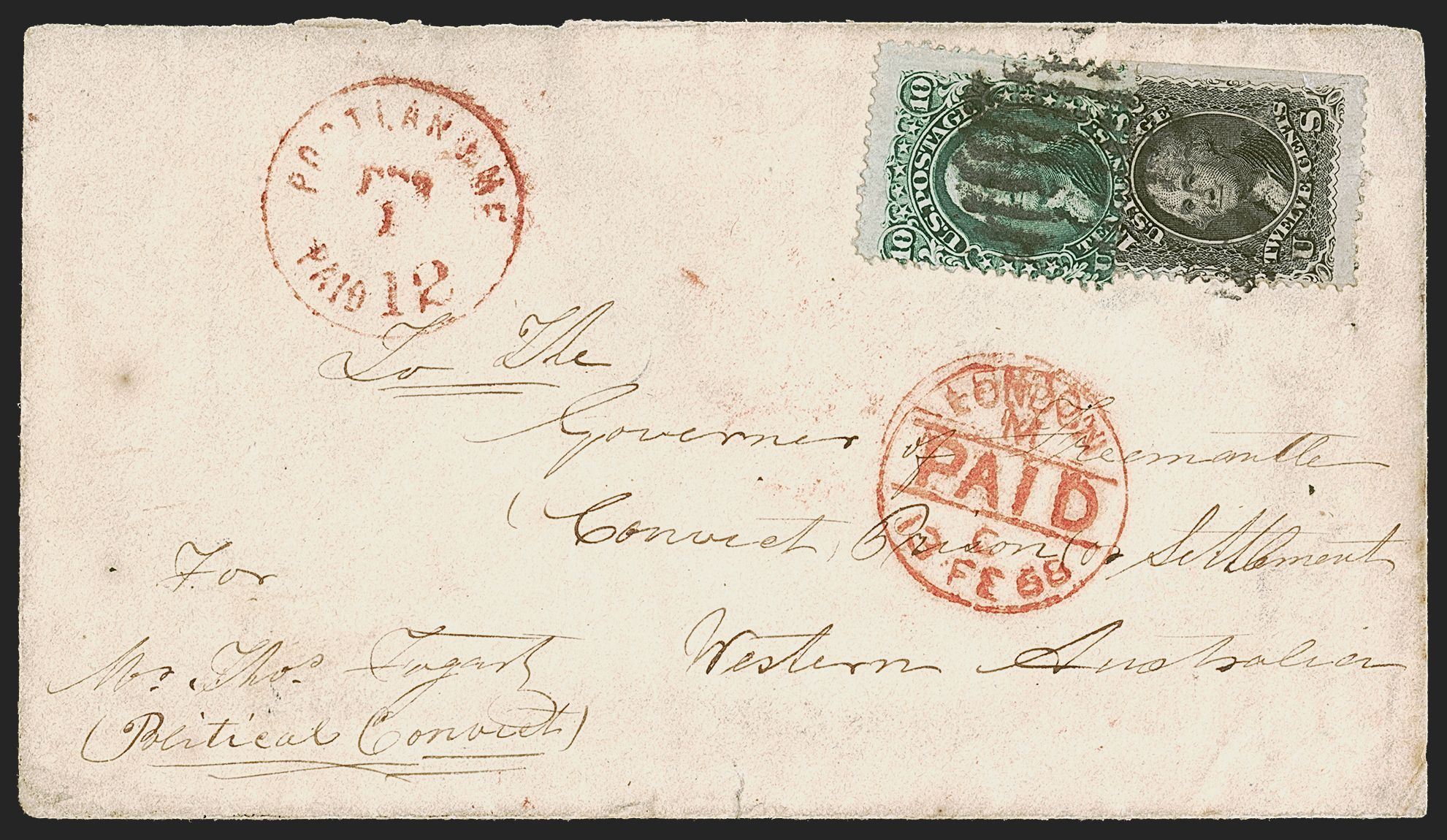It's a letter awaiting a new recipient.
Robert A. Siegel Auction Galleries in New York, an auction house that specializes in the sale of rare postal stamps and artifacts, will be offering a "Fenian Letter" for sale by auction on Wednesday, September 27.
What's on offer is the Gilbart Collection, which includes an 1868 envelope to an Irish Political Prisoner in Australia.
The envelope will go on the block as a standalone item for sale.
In May of 1867, Thomas Fogarty of Kilfeacle, County Tipperary, was convicted for his role in the Fenian Rising and sentenced to five years in Fremantle Prison in Western Australia.
156 years later, an envelope which originally contained a censored letter from his brother, is making its way to the auction block in New York City.
According to a release from Siegel Auction Galleries, Fremantle Prison, which was in use until 1991 and today stands as a UNESCO World Heritage Site and stark reminder of the British Empire’s practice of penal colonies, was once home to dozens of Irishmen convicted for their roles in the Fenian Rising.
Six Fenians held in Fremantle Prison were rescued by the American ship "Catalpa" in 1876.
The five-year sentence for Thomas Fogarty, then just 20 years old, stemmed from charges of “being of an armed party of insurgents illegally assembled for treasonable purposes.”
Upon Fogarty’s arrival in Western Australia in January 1868, his access to mail was severely limited by local authorities who sought to suppress all “improper matter.” At least one letter from Fogarty’s brother Simon in Portland, Maine, was intercepted by prison officials on the grounds that it contained “Fenian matter.”
Prisoners were permitted to write no more than one letter every two months, but even then, Western Australia Governor John Stephen Hampton refused to provide Fogarty his brother’s address as he determined it would be unwise to let the brothers communicate.
After just a year in Fremantle Prison, Fogarty was discharged and joined 24 other Fenian prisoners in moving to San Francisco, California. There they were welcomed with open arms by the Fenian Brotherhood, who arranged accommodations and organized a reception upon their arrival. Fogarty would remain in San Francisco until his death in 1897.
The envelope being offered at auction went from Portland, Maine to Derry and from there to London. That journey took 77 days in 1868.
Stated the release: Although there is no way of knowing exactly what was originally inside the
envelope, the fact that at least one of Simon Fogarty’s letters fell victim to censorship suggests that its contents were likely politically motivated.
“While collectors of 19th century envelopes that traveled across oceans in search of the addressee prize this item for the stamps and unusual Australian destination, the address itself tells a story of “insurrection” in Great Britain and Ireland. One can imagine how Fogarty’s family felt when he was convicted and sent to a penal colony in a distant land,” said Scott Trepel, President of Siegel Auctions.
Concluded the release: "Robert A. Siegel Auction Galleries was founded in 1930 in Kansas City, Missouri and moved to New York City in 1934. Over the firm’s 93 years of business, Siegel has distinguished itself as the leading philatelic auction house in the United States. Siegel has broken multiple auction records with sales including the Inverted Jenny plate block at $2.97 million, the Brazil Pack strip at $2.185 million, the Hawaiian 2c Missionary cover at $2.090 million, the Inverted Jenny single at $977,500 and the 1c Z Grill at $935,000."
More at www.siegalauctions.com








